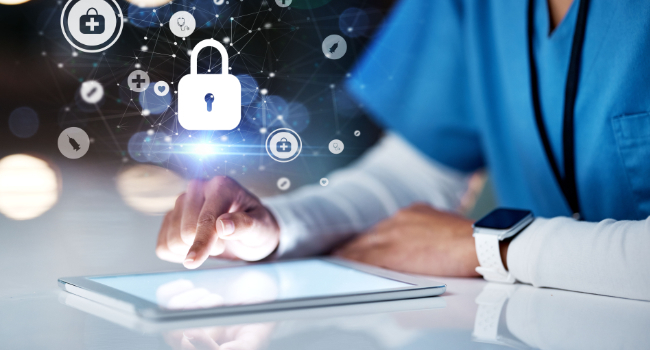
Report Shines Spotlight on Cybersecurity Crisis in Healthcare Sector
KnowBe4 recently released its International Healthcare Report. The report takes a closer look at the cybersecurity crisis currently experienced by the healthcare sector, in particular hospital groups, across the world.
The healthcare sector in North America is facing a severe cybersecurity crisis. In fact, a staggering 73% of global ransomware attacks on healthcare institutions affected those in the US. This prompted The Department of Health and Human Services to take action, developing new rules for hospitals to bolster their defenses against cyber threats. Furthermore, the department plans to revise the rules for the Health Insurance Portability and Accountability Act later this year, incorporating new provisions that specifically address cybersecurity concerns.
Hospitals have become increasingly attractive targets for ransomware attacks due to their comprehensive patient databases, sensitive information, and their interconnectedness between systems and equipment. Moreover, poor security measures have made hospitals vulnerable to cyber threats. When attacked, cybercriminals can potentially take control of entire hospital systems, and gain access not only to patients' health information but also their financial and insurance data.
Hospitals are severely impacted by cyberattacks, which can lead to a reduction in patient care, loss of access to electronic systems, and a reliance on incomplete paper records. This can also result in the cancellation of surgeries, tests, appointments, and, in some cases, even loss of life.
Some shocking facts discussed in the report include:
- In the first three quarters of 2023, the global healthcare sector experienced a staggering 1,613 cyberattacks per week, nearly four times the global average, and a significant increase from the same period the previous year.
- The healthcare sector has seen a dramatic surge in cyberattack costs over the past three years, with the average cost of a breach reaching nearly $11 million, more than three times the global average. This makes healthcare the costliest sector for cyberattacks.
- Ransomware attacks have been the most prevalent type of cyberattack on healthcare organizations, accounting for over 70% of successful attacks in the past two years.
- The majority of cyberattacks (between 79% and 91%), across sectors, begin with phishing or social engineering tactics, which allow cybercriminals to gain access to accounts or servers.
- According to KnowBe4’s 2024 Phishing by Industry Benchmarking Report, healthcare and pharmaceutical organizations are among the most vulnerable to phishing attacks, with employees in large organizations in the sector having a 51.4% likelihood of falling victim to a phishing email. This means that cybercriminals have a better than 50/50 chance of successfully phishing an employee in the sector.
“The healthcare sector remains a prime target for cybercriminals looking to capitalize on the life-or-death situations hospitals face,” says Stu Sjouwerman, CEO of KnowBe4. “With patient data and critical systems held hostage, many hospitals feel like they are left with no choice but to pay exorbitant ransoms. This vicious cycle can be broken by prioritizing comprehensive security awareness training to empower employees and cultivate a positive security culture as a strong defense against phishing and social engineering attacks."
The report examines the state of cybersecurity in the healthcare sector in North America, Europe, the United Kingdom, Asia-Pacific, Africa, and Latin America. In addition it also highlights some of the most prolific global ransomware attacks that occurred between December 2023 and May 2024, the aftermath thereof and what healthcare organizations can do to protect themselves from cyberattacks.
To download a copy of KnowBe4’s International Healthcare Report, click here.